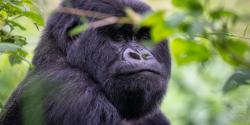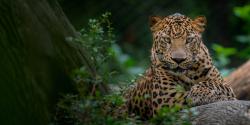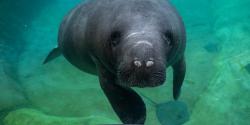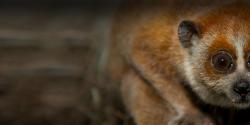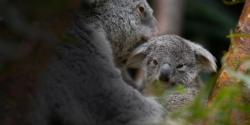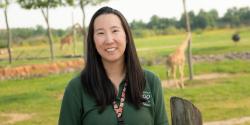Powell, OH – The female elephant calf at the Columbus Zoo and Aquarium died at approximately 1:30 this afternoon after a sudden illness. The calf was being monitored 24 hours a day by members of her care team. She was observed nursing overnight, but at 6:30 a.m. she appeared sluggish. The veterinary team determined she had an infection and administered fluids, antibiotics, and blood plasma from her mother, Phoebe. She appeared to rebound and nursed before her health rapidly declined again. A full necropsy (animal autopsy) will be conducted and results will not be available for several weeks.
“At only a few weeks of age, this little calf had already won our hearts. She was a cherished member of our Zoo family, and we are mourning her passing,” said Columbus Zoo President/CEO Tom Stalf. “I have the privilege of working alongside amazing, compassionate and dedicated animal experts. Our team is going through an exceptionally difficult time with our recent unrelated losses, and we are appreciative of the outpouring of support we receive from near and far.”
The much-anticipated birth occurred on December 6 and the calf was quickly on her feet and nursing. The calf was the first elephant born at the Columbus Zoo in almost 10 years and the first to be born at the Zoo as a result of artificial insemination. Mother, Phoebe, is a 31-year-old Asian elephant who came to the Zoo in January 2002. While Phoebe has had the opportunity to breed with Hank, a 30-year-old male elephant at the Columbus Zoo, the attempts were unsuccessful and she was artificially inseminated with sperm from Hank and a male from another zoo. The father of the calf is not yet known and is being determined through DNA. Artificial insemination enables an elephant to be impregnated at her most fertile time. While still a relatively rare procedure for elephants, attempts to artificially inseminate elephants are becoming more frequent in an effort to bolster the numbers of endangered elephants, whose populations are rapidly declining in their native range.
The calf was part of the herd of six other Asian elephants in the Asia Quest region: males, Hank and Beco, and females, Phoebe, Connie, Sundara (Sunny) and Rudy. There have been three successful Asian elephant births at the Columbus Zoo throughout the Zoo’s history, and all three have been born to Phoebe —this most recent calf, Beco in 2009 and male, Bodhi, who was born in 2004 and now resides at Denver Zoo. Coco, who passed away at the Columbus Zoo in 2011, was the sire of Beco and Bodhi.
The Columbus Zoo and Aquarium is a long-time supporter of several direct elephant conservation initiatives benefitting both African and Asian elephants, including annual donations to the International Elephant Foundation and several research projects and grants over the last 23 years. Many of these research projects have focused on improving human-wildlife coexistence and monitoring elephant populations in their native ranges. Zoo visitors also have the opportunity to learn about elephant conservation and how they can contribute to the sustainability of this endangered species at the Zoo’s Elephant Conservation Station inside the “Vanishing Giants” building located in the Asia Quest region.
According to the International Union for Conservation of Nature (IUCN) Red List of Threatened Species™, Asian elephants are listed as endangered in their native range across southern and southeastern Asia and are in decline due to various factors, including habitat loss/degradation and poaching. The World Elephant Day organization estimates that there are less than 40,000 Asian elephants and fewer than 400,000 African elephants remaining worldwide.
###
About the Columbus Zoo and Aquarium
Home to more than 10,000 animals representing over 600 species from around the globe, the Columbus Zoo and Aquarium leads and inspires by connecting people and wildlife. The Zoo complex is a recreational and education destination that includes the 22-acre Zoombezi Bay water park and 18-hole Safari Golf Course. The Columbus Zoo and Aquarium also manages The Wilds, a 10,000-acre conservation center and safari park located in southeastern Ohio. The Zoo is a regional attraction with global impact; annually contributing more than $4 million of privately raised funds to support conservation projects worldwide. A 501(c)(3) nonprofit organization, the Columbus Zoo has earned Charity Navigator’s prestigious 4-star rating.

